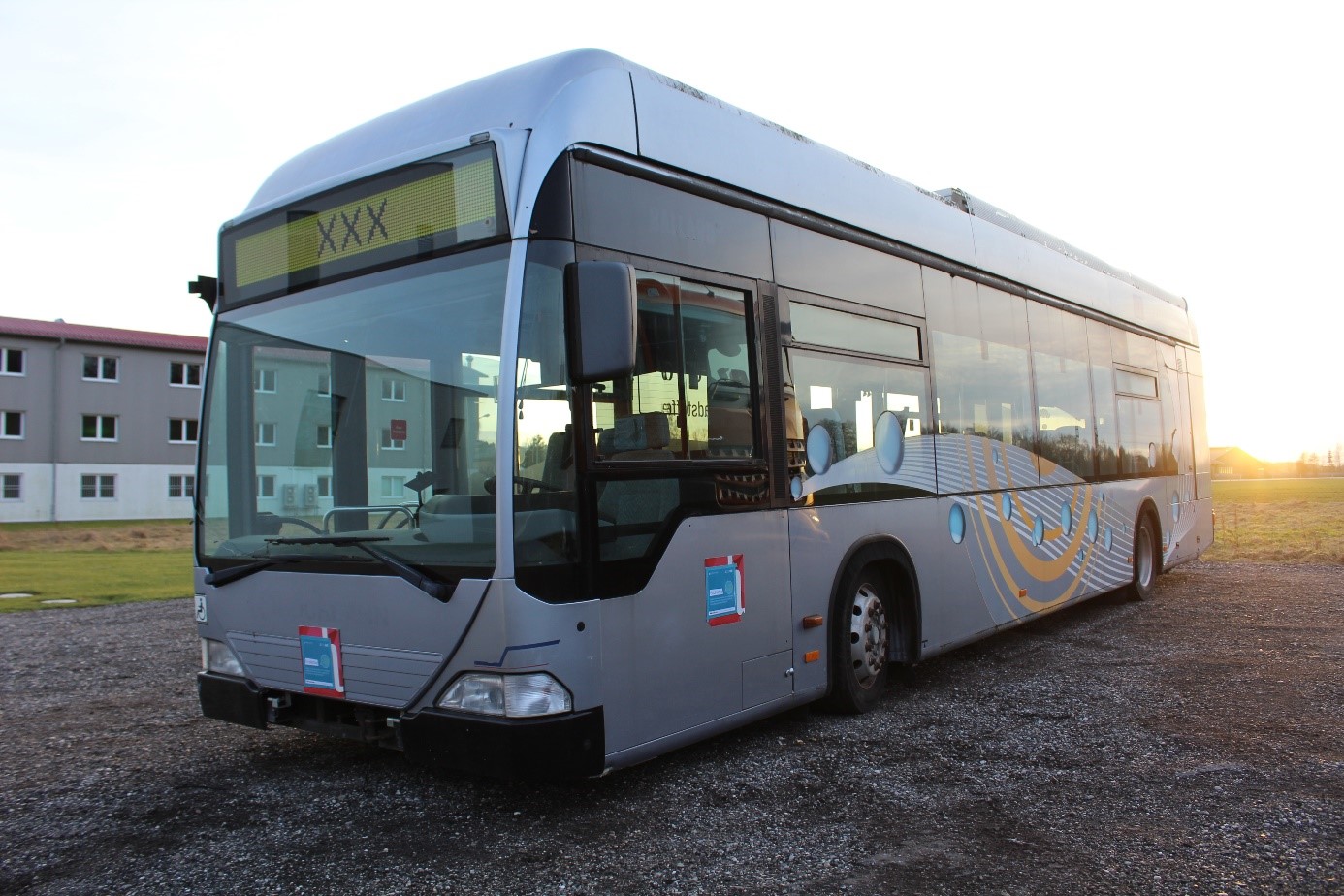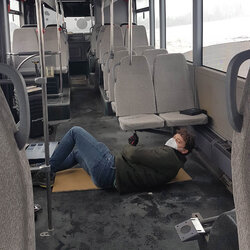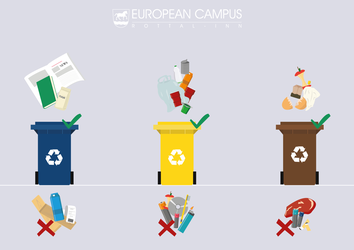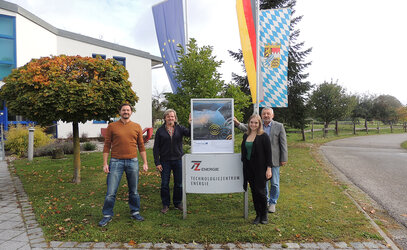
Now it is finally ours! We welcomed the ECRI bus at the beginning of February on our campus. For over a year now, we have been waiting for the old omnibus. Many coordination meetings were necessary before it could finally arrive.
Since many people are interested in the bus and kept asking us questions about it, we decided to keep you updated on our crazy EcoHome project in this blog series. This will probably not only include success stories, but that’s how it is with a project. It consists of successes and failures. But now we would like to give you a little update on what has happened so far.
So, let’s turn to the most important question: why did we get this bus in the first place?
At some point, the question who would be interested in an old omnibus came up. We, the European Campus’s EcoLab, developed a rough concept with which we applied to the University’s management in order to get the bus. The idea was to convert an old omnibus into a meeting space and real laboratory for students and campus members. For that, we not only developed a concept for the bus, but also for a container and a terrace. Together they will build a complex. After we have handed in our concept, the responsible people decided that the EcoLab could have the bus.
As soon as the University had approved the rough concept we had designed, we had to find a suitable location for the bus. It will be installed permanently on campus, meaning that it will no longer drive. To find the perfect location we took criteria such as protection from noise, hours of sunshine, accessibility of the bus and access to the existing electricity and water supply into consideration.
Since the bus will permanently stay at one place and will not be moved every other week, we had to submit a building application (in German: Bauantrag). The application has been approved by the end of 2020. During this period, we refined our rough concept together with students from the 5th and 7th semesters of our tourism bachelor’s programme and also incorporated ideas from campus members into the concept. With the building application approved, the location for the bus defined and the rough concept in progress, we moved on to the transportation of the bus to the ECRI campus.
Now that the first steps have been made our task is to convert this bus into a meeting area with LivingLab character. In the next stage, we would like to include the members of the campus as well as various DIT degree programmes. This part however has been an incredible challenge for us so far, since the corona pandemic prevents active involvement of campus members on-site. To ensure the LivingLab character, the bus is to be equipped with measuring devices. Examples for that would be a weather station or a photovoltaic system to collect electricity.
We are currently clarifying which ideas can be technically implemented for the final concept. This turns out to be a real challenge and we have so many questions to answer. Should we remove the engine in order to create more space? Change the old windows to insulated ones? Would insulating glass film also be sufficient? Is insulating glass film even possible because the windows are already so old and scratched? Remove the tires and the axle so that we can level the inside floor? Is heating in winter necessary, reasonable, feasible? Is cooling in summer necessary, reasonable, feasible? Is it technically even possible and sensible? Is there still room to move around in the bus with insulation installed?
As you can see we are facing question after question with our crazy project and I think I am slowly going crazy as well. Since the arrival of the bus on campus, it has kept me busy day and night. I even dream of the bus and when I wake up at night the first thing I think about is the bus and what I still have to clarify and work out. It is not an ordinary project and that’s why I enjoy it so much! It’s a challenge for me and I am constantly learning new things.
Converting a bus sounded simple at first. However, it soon turned out to be a bit more challenging. In fact, converting an omnibus is quite similar to renovating an old house. You cannot build things from scratch the way you want. You have to work with what is already in place and also make compromises in order for the whole concept to work out in the end. As we have seen with the bus so far, some ideas are not convertible, which is quite tedious. The bus turned out to be a challenge that makes standardized solutions almost impossible.
To make it even more challenging, we set ourselves the goal to incorporate the idea of sustainability into the EcoHome project. This means to use old resources in the best possible way and to question critically everything that will be installed in the bus.
Our EcoHome bus should have neither the character of a mobile home nor a ”normal” housing complex. It’s a bus and the bus character should be maintained. At the same time our student assistant Victor is already dismantling the old furniture and cables from the bus. Due to the corona pandemic, it is very hard to involve more students in the project at the moment. However, Victor is doing a great job! The bus is pretty empty already. Currently we are looking for help from the technical study programmes to develop the final concept. In the upcoming weeks and months, we are going to keep you updated on the project via the blog, Facebook and the DIT website (https://th-deg.de/ecri#nachhaltigkeit). There you can also find more information on the bus project.
For us it is now time to gather more information for the concept, facing question after question….
Jenny from EcoLab
Jennifer Huber has been working as a research assistant at the European Campus Rottal-Inn (ECRI) since 2018. Her main focus lies on integrating education for sustainable development into teaching at ECRI, as well as the development of ECRI towards a sustainable campus. She is a member of DIT’s working group on sustainable development.










